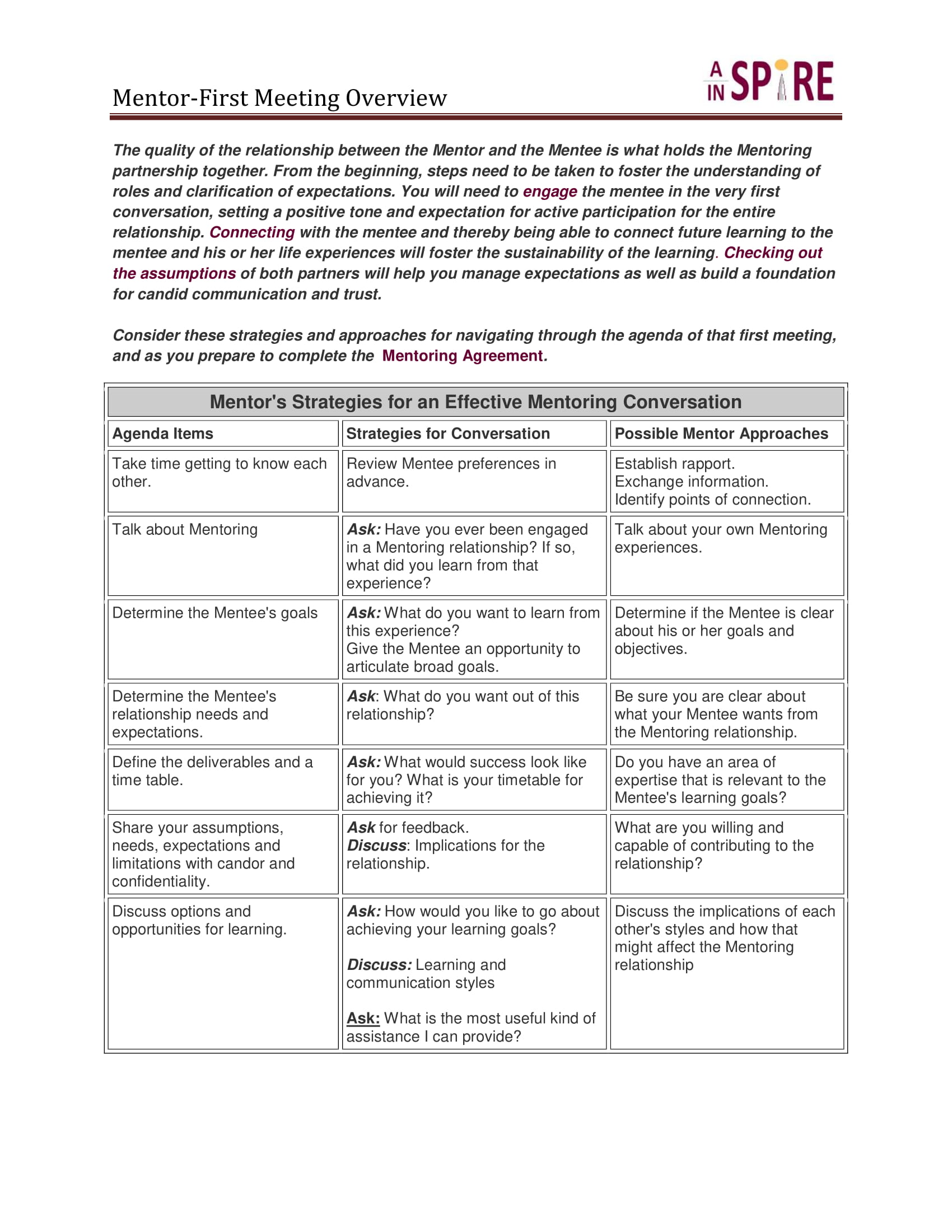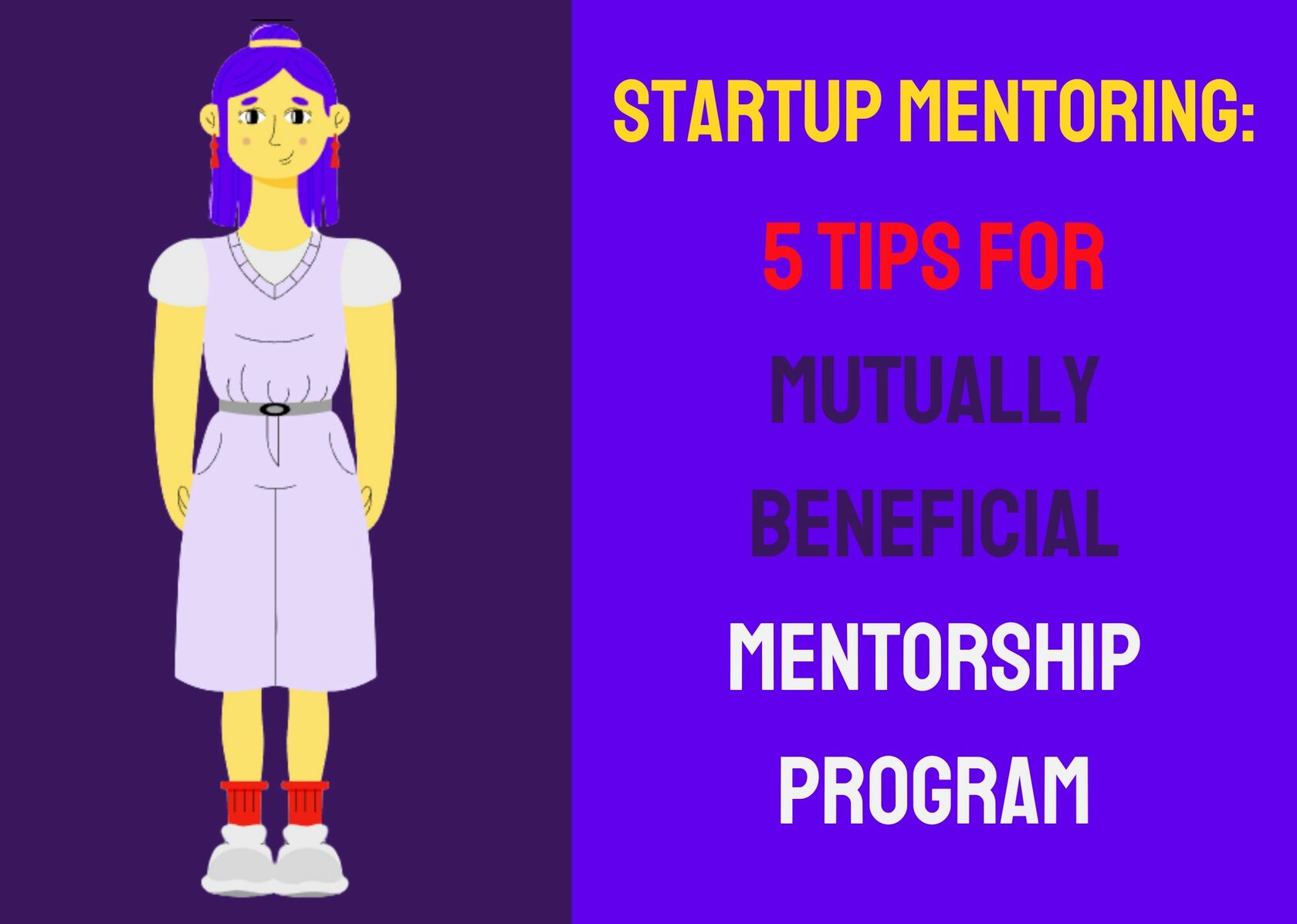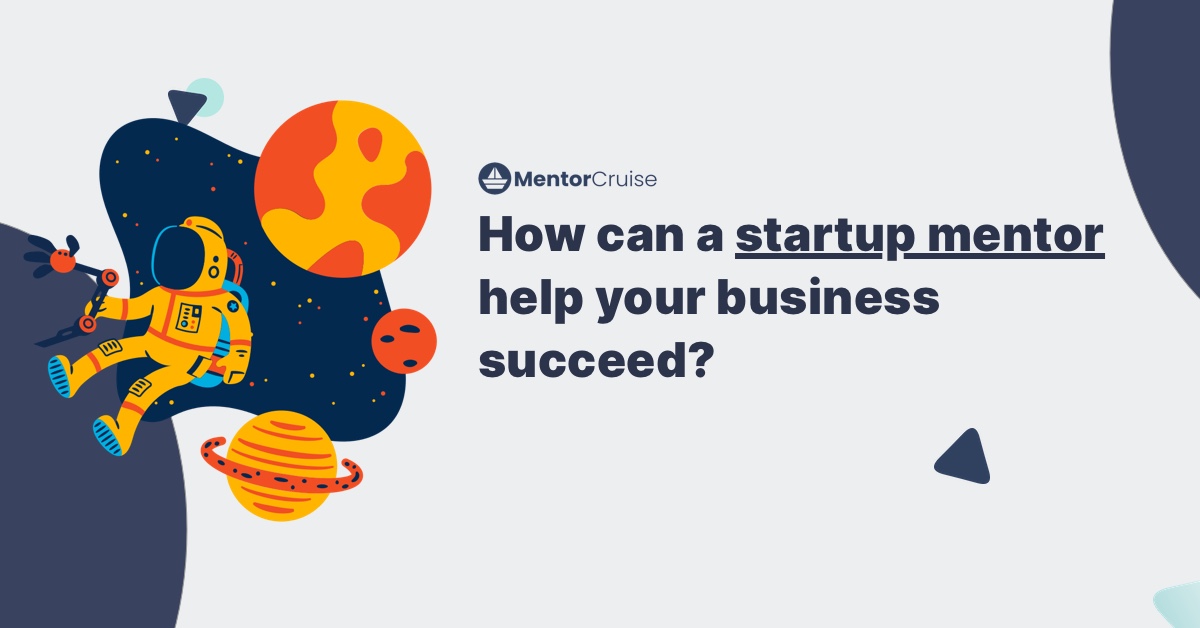The Importance of Mentorship in the Startup Ecosystem
Mentorship plays a vital role in the startup ecosystem, providing founders with the guidance, networking opportunities, and access to valuable expertise necessary to overcome common challenges and increase their chances of success. Startup mentorship programs offer a structured approach to mentorship, connecting founders with experienced entrepreneurs, investors, and industry experts who can offer valuable insights and support.
One of the primary benefits of startup mentorship programs is the opportunity for founders to learn from others who have navigated similar challenges. Experienced mentors can provide guidance on everything from product development and marketing to fundraising and team management. This guidance can be invaluable in helping founders avoid costly mistakes and make informed decisions about their business.
In addition to guidance, startup mentorship programs also provide founders with access to a network of contacts and connections that can be leveraged to drive growth and success. This network can include other entrepreneurs, investors, and industry experts, all of whom can offer valuable advice, introductions, and support.
Furthermore, startup mentorship programs can help founders develop the skills and expertise necessary to succeed in today’s fast-paced and competitive startup landscape. Through a combination of workshops, seminars, and one-on-one mentoring, founders can
What Makes a Great Startup Mentorship Program?
A great startup mentorship program is one that provides founders with the guidance, support, and resources they need to succeed. Effective programs typically have several key characteristics, including experienced mentors, structured support, and a focus on founder development.
Experienced mentors are a crucial component of any successful startup mentorship program. These individuals have a deep understanding of the startup ecosystem and can offer valuable insights and advice to founders. They may have founded their own startups, worked with venture capital firms, or held leadership positions in established companies.
Structured support is also essential for a great startup mentorship program. This can include regular meetings with mentors, workshops and seminars, and access to online resources and tools. By providing a clear framework for support, founders can get the help they need to overcome common challenges and achieve their goals.
A focus on founder development is another key characteristic of effective startup mentorship programs. These programs recognize that founders are the driving force behind their startups, and that their success is critical to the success of the business. By providing founders with the skills and knowledge they need to lead their companies effectively, mentorship programs can help drive growth and innovation.
Examples of successful startup mentorship programs include Y Combinator, Techstars, and 500 Startups. These programs have helped launch some of the world’s most successful startups, including Airbnb, Dropbox, and Uber. They offer a combination of funding, mentorship, and networking opportunities that help founders build and grow their businesses.
Y Combinator, for example, provides founders with access to a network of experienced mentors and investors. The program also offers a structured framework for support, including regular meetings and workshops. This approach has helped Y Combinator become one of the most successful startup accelerators in the world.
Techstars, another well-known startup mentorship program, offers a similar approach. The program provides founders with access to a network of mentors and investors, as well as a structured framework for support. Techstars has helped launch some of the world’s most successful startups, including SendGrid and FullContact.
500 Startups, a seed fund and startup accelerator, also offers a successful mentorship program. The program provides founders with access to a network of experienced mentors and investors, as well as a structured framework for support. 500 Startups has helped launch some of the world’s most successful startups, including Warby Parker and Lyft.
By providing founders with the guidance, support, and resources they need to succeed, startup mentorship programs can play a critical role in driving growth and innovation. Whether you’re a seasoned entrepreneur or just starting out, a great startup mentorship program can help you achieve your goals and build a successful business.
How to Find the Right Mentorship Program for Your Startup
With numerous startup mentorship programs available, finding the right one for your startup can be a daunting task. To increase the chances of success, it’s essential to research and select a program that aligns with your startup’s specific needs and goals. Here are some practical tips to help you find the perfect mentorship program for your startup.
Firstly, consider the program’s duration and structure. Some mentorship programs may last for a few months, while others may span several years. Ensure that the program’s duration aligns with your startup’s growth stage and goals. Additionally, look for programs with a structured approach, including regular meetings, workshops, and networking events.
Another crucial factor to consider is the expertise of the mentors. Look for programs with mentors who have experience in your industry or niche. This will ensure that you receive valuable guidance and insights that are relevant to your startup. Also, check if the mentors are experienced entrepreneurs or industry experts who can provide actionable advice.
Networking opportunities are also a vital aspect of any mentorship program. Look for programs that offer access to a network of entrepreneurs, investors, and industry experts. This can help you establish valuable connections, find potential partners or investors, and stay updated on industry trends.
Furthermore, consider the program’s focus on founder development. A good mentorship program should prioritize the growth and development of the founder, rather than just the startup. Look for programs that offer training, workshops, and coaching on topics such as leadership, marketing, and fundraising.
Finally, research the program’s success stories and testimonials from previous participants. This will give you an idea of the program’s effectiveness and whether it’s a good fit for your startup.
Some popular startup mentorship programs to consider include Y Combinator, Techstars, and 500 Startups. These programs have a proven track record of success and offer a range of benefits, including funding, networking opportunities, and mentorship from experienced entrepreneurs.
By considering these factors and doing your research, you can find a startup mentorship program that aligns with your startup’s needs and goals. Remember, a good mentorship program can be a game-changer for your startup, providing valuable guidance, networking opportunities, and access to expertise that can help you succeed in the competitive startup ecosystem.
Maximizing the Value of Mentorship: Tips for Founders
Participating in a startup mentorship program can be a game-changer for founders, providing access to valuable guidance, expertise, and networking opportunities. However, to get the most out of a mentorship program, founders need to be proactive and intentional in their approach. Here are some tips for founders to maximize the value of mentorship:
Be Open to Feedback: One of the most significant benefits of a mentorship program is the opportunity to receive feedback from experienced entrepreneurs and industry experts. Founders should be open to constructive criticism and use it as a chance to learn and grow. This means being receptive to new ideas, willing to pivot when necessary, and humble enough to acknowledge areas for improvement.
Set Clear Goals: Before starting a mentorship program, founders should define clear goals and objectives for what they want to achieve. This could include refining their business model, developing a marketing strategy, or preparing for fundraising. By setting specific goals, founders can focus their efforts, measure progress, and make the most of their mentorship experience.
Maintain Regular Communication: Regular communication is key to a successful mentorship experience. Founders should schedule regular check-ins with their mentors, provide updates on their progress, and ask for feedback and guidance. This will help build a strong relationship with their mentors and ensure that they are getting the support they need to succeed.
Be Proactive: Founders should be proactive in seeking out opportunities and resources within the mentorship program. This could include attending networking events, participating in workshops and training sessions, and connecting with other founders and mentors. By taking the initiative, founders can maximize their exposure to valuable resources and expertise.
Focus on Founder Development: A good mentorship program should prioritize the growth and development of the founder, not just the startup. Founders should focus on developing their skills, knowledge, and network, and use the mentorship program as a chance to learn and grow as entrepreneurs.
Measure Progress: Finally, founders should measure their progress and track the impact of the mentorship program on their startup. This could include monitoring key performance indicators (KPIs) such as revenue growth, customer acquisition, and team development. By tracking progress, founders can refine their approach, make data-driven decisions, and ensure that they are getting the most out of their mentorship experience.
By following these tips, founders can maximize the value of their startup mentorship program and set themselves up for success. Remember, a mentorship program is a two-way street – founders need to be proactive, open to feedback, and focused on their goals to get the most out of the experience.
Real-World Examples of Successful Startup Mentorship Programs
There are numerous startup mentorship programs that have achieved significant success in supporting entrepreneurs and driving innovation. Here are a few examples of well-known programs that have made a lasting impact on the startup ecosystem:
Y Combinator: Founded in 2005, Y Combinator is one of the most prestigious startup accelerator programs in the world. With a focus on early-stage startups, Y Combinator provides funding, mentorship, and networking opportunities to help entrepreneurs grow and scale their businesses. Notable alumni include Airbnb, Dropbox, and Reddit.
Techstars: Techstars is a global startup accelerator program that offers funding, mentorship, and networking opportunities to entrepreneurs. With a focus on technology startups, Techstars has supported companies such as Uber, SendGrid, and Twilio. The program’s success can be attributed to its strong network of mentors and partners, as well as its rigorous selection process.
500 Startups: 500 Startups is a seed fund and startup accelerator program that focuses on supporting early-stage startups. With a global presence, 500 Startups has invested in over 2,000 companies, including notable successes such as Lyft, Warby Parker, and MakerBot. The program’s success can be attributed to its diverse network of mentors and partners, as well as its focus on supporting underrepresented founders.
These programs demonstrate the impact that startup mentorship programs can have on driving innovation and supporting entrepreneurs. By providing access to funding, mentorship, and networking opportunities, these programs have helped countless startups grow and scale their businesses.
Key takeaways from these programs include the importance of a strong network of mentors and partners, a rigorous selection process, and a focus on supporting underrepresented founders. Additionally, these programs demonstrate the value of providing access to funding, mentorship, and networking opportunities to support entrepreneurs in their journey.
Startup mentorship programs like Y Combinator, Techstars, and 500 Startups have set a high standard for supporting entrepreneurs and driving innovation. By studying these programs and incorporating their best practices, other startup mentorship programs can increase their impact and support the next generation of startup founders.
Measuring the Impact of Mentorship on Startup Growth
Evaluating the effectiveness of startup mentorship programs can be a challenging task. However, it’s essential to measure the impact of mentorship on startup growth to ensure that programs are meeting their objectives and providing value to founders. Here are some key performance indicators (KPIs) to track and insights on how to measure the impact of mentorship:
Founder Satisfaction: One of the most critical KPIs to track is founder satisfaction. This can be measured through surveys, feedback forms, or regular check-ins with founders. By tracking founder satisfaction, programs can identify areas for improvement and ensure that founders are receiving the support they need.
Startup Growth: Another essential KPI to track is startup growth. This can be measured by tracking metrics such as revenue growth, customer acquisition, and team development. By tracking startup growth, programs can evaluate the impact of mentorship on the success of participating startups.
Job Creation: Job creation is another critical KPI to track, as it’s a key indicator of economic growth and development. By tracking job creation, programs can evaluate the impact of mentorship on the broader economy and community.
Return on Investment (ROI): ROI is a critical KPI to track, as it helps programs evaluate the financial impact of mentorship. By tracking ROI, programs can evaluate the return on investment for participating startups and ensure that mentorship is providing a positive financial impact.
Challenges of Measuring Impact: Measuring the impact of mentorship can be challenging due to the subjective nature of mentorship and the difficulty of isolating the impact of mentorship from other factors. However, by tracking KPIs such as founder satisfaction, startup growth, job creation, and ROI, programs can gain valuable insights into the effectiveness of mentorship.
Best Practices for Measuring Impact: To effectively measure the impact of mentorship, programs should establish clear goals and objectives, track KPIs regularly, and use data to inform program decisions. Additionally, programs should consider using third-party evaluators or independent researchers to evaluate the impact of mentorship and provide an objective assessment of program effectiveness.
By tracking KPIs and using data to inform program decisions, startup mentorship programs can ensure that they are providing value to founders and driving startup growth. By measuring the impact of mentorship, programs can also demonstrate their effectiveness to stakeholders, secure funding, and attract top talent.
Creating a Sustainable Mentorship Ecosystem
Building a sustainable mentorship ecosystem is crucial for the long-term success of startup mentorship programs. A sustainable ecosystem ensures that programs can continue to provide value to founders, drive innovation, and promote economic growth. Here are some strategies for creating a sustainable mentorship ecosystem:
Engaging Experienced Mentors: Engaging experienced mentors is critical for creating a sustainable mentorship ecosystem. Experienced mentors can provide valuable guidance, expertise, and networking opportunities to founders. To engage experienced mentors, programs should offer incentives such as recognition, networking opportunities, and the chance to give back to the startup community.
Fostering a Culture of Giving Back: Fostering a culture of giving back is essential for creating a sustainable mentorship ecosystem. Programs should encourage mentors to give back to the startup community by sharing their expertise, experience, and network. This can be achieved by creating a sense of community among mentors, recognizing their contributions, and providing opportunities for them to connect with other mentors and founders.
Ensuring Program Longevity: Ensuring program longevity is critical for creating a sustainable mentorship ecosystem. Programs should have a clear plan for ensuring their longevity, including securing funding, building a strong network of mentors and partners, and continuously evaluating and improving their programs.
Building a Strong Network of Partners: Building a strong network of partners is essential for creating a sustainable mentorship ecosystem. Programs should partner with organizations that share their mission and values, and that can provide valuable resources and expertise to founders. This can include partnerships with venture capital firms, incubators, accelerators, and other startup support organizations.
Creating a Sustainable Business Model: Creating a sustainable business model is critical for creating a sustainable mentorship ecosystem. Programs should have a clear plan for generating revenue, including funding models, sponsorship opportunities, and revenue-sharing agreements. This will ensure that programs can continue to provide value to founders and drive innovation and economic growth.
By implementing these strategies, startup mentorship programs can create a sustainable mentorship ecosystem that provides value to founders, drives innovation, and promotes economic growth. A sustainable ecosystem ensures that programs can continue to thrive and provide value to the startup community for years to come.
Empowering the Next Generation of Startup Founders
Mentorship programs play a critical role in empowering the next generation of startup founders, driving innovation, and promoting economic growth. By providing guidance, networking opportunities, and access to valuable expertise, mentorship programs can help founders overcome common challenges and increase their chances of success.
The impact of mentorship programs on startup growth and innovation cannot be overstated. According to a study by the National Bureau of Economic Research, startups that participate in mentorship programs are more likely to experience rapid growth and innovation. Additionally, a study by the Kauffman Foundation found that mentorship programs can increase the likelihood of startup success by up to 30%.
Furthermore, mentorship programs can also have a positive impact on the broader economy. By supporting the growth and development of startups, mentorship programs can create jobs, stimulate economic growth, and promote innovation. According to a study by the Small Business Administration, startups account for approximately 60% of net new job creation in the United States.
In conclusion, mentorship programs are a critical component of the startup ecosystem, providing valuable guidance, networking opportunities, and access to expertise for founders. By empowering the next generation of startup founders, driving innovation, and promoting economic growth, mentorship programs can have a lasting impact on the startup community and the broader economy.
As the startup ecosystem continues to evolve, it is essential that mentorship programs adapt to meet the changing needs of founders. By incorporating innovative and creative concepts, such as virtual mentorship programs and AI-powered mentorship platforms, mentorship programs can continue to provide value to founders and drive startup growth and innovation.
Ultimately, the success of mentorship programs depends on the collective efforts of the startup community. By working together to provide guidance, support, and resources to founders, we can create a thriving startup ecosystem that drives innovation, promotes economic growth, and empowers the next generation of startup founders.








